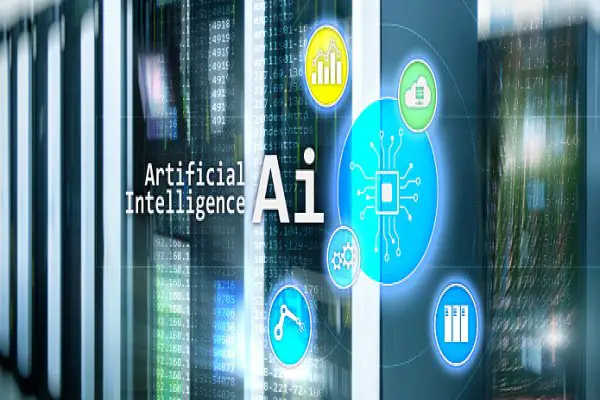The hip world is abuzz with the introduction of CRT, ESG, and DEI, which stand for Critical Race Theory (or racism in schools), Environmental, Social, and Governance (to reduce profits), and Diversity, Equity, and Inclusion (to prevent different perspectives, prioritize groups over people and exclude traditionalists). They are also discussing “Artificial Intelligence” or AI. It is important to look beyond the hype surrounding these topics.
Artificial Intelligence (AI) application involves computers, datasets, and machine learning algorithms that enable bots to gain knowledge through their responses and results. As the field progresses, AI is developing capabilities similar to human capabilities; it can replicate reactions, expressions, and writing styles.
Those with an eye to the future are filled with joy and fear. The prospect of AI “bots” taking over certain tasks that humans formerly did has some people worried that humanity could become enslaved by, reliant upon, and subservient to machines.
Innovative computer programmers, entrepreneurs, AI experts, and those devoted to perfecting humanoid bots technology to surpass human performances have been particularly enthusiastic about this.
Technologies such as ChatGPT (Chat Generative Pre-Trained Transformer) are gaining popularity on social media and in the blogosphere. This artificial intelligence system can interact with people like a human, compose essays, answer legal inquiries, and give the illusion that one is talking to an actual person.
ChatGPT is a form of AI specifically designed to replicate human conversation. It can manage dialogue, acknowledge mistakes, question assumptions, and discern between what is relevant and irrelevant. As a chatbot, it shows remarkable progress in its ability to emulate conversations with humans.
This AI platform has seen remarkable success in a short amount of time, with 100 million users signing up in just 60 days. People are interested in many different reasons, some controversial. The real concern now is what the implications of this technology will be and whether or not they will be beneficial.
AI has sparked many debates due to its potential for errors, inaccuracy, and manipulation. The results it produces can be wrong, unchecked, deceptive, or driven by an underlying agenda that is not revealed. This could put people in harm’s way if left unchecked.
Dialogue can result in a medical, legal, scientific, business, educational, social, or psychological reaction. It can encourage reliance and lead to the wrong impression that a human being is involved. This has its worries, especially for those who are not tech-savvy.
Thirdly, a greater worry is that AI technology might replace humans in the workplace, like “Hal 9000” from the film “2001: A Space Odyssey,” or become akin to Frank Herbert’s self-thinking, an omniscient character in “Destination Void.”
It is inaccurate to assume that bad people can use Artificial Intelligence to convince good people, especially younger generations, to do the wrong things. This could include brainwashing them or subtly influencing their choices, leading them to avoid tasks and neglecting the essence of being human. However, this is certainly not always the case.
It is highly unlikely that a malicious national government would be able to manipulate, deceive, or oppress citizens through AI. People will always prefer genuine human interactions, even the most advanced robots, over those with machines. Additionally, distinguishing humans from non-humans will likely become more sophisticated.
When we hear a recording telling us to “have a good day,” does it evoke strong emotion? Does it boost our levels of endorphins, serotonin, or adrenal output, giving us the same sensation as if we were interacting with another human being? Or do we respond with an apathetic “yeah, thanks”? It is rare for us to feel connected to something that has no real emotions.
Originality, creativity, and emotions that cannot be programmed, as well as intangible concepts such as faith, inspiration, kindness for its own sake, self-sacrifice for higher goals, sympathy, empathy, and love – all of these things render “bots” incapable of understanding ideas about salvation and justice.
Even at their most advanced, machines lack a soul and the capacity to feel compassion. They can replicate life but not create it nor bring any creature – not even a parrot – to life. Their existence is limited to mimicking the living and breathing world, but they will never possess a human presence.
Only God can create life; machines may be able to imitate, but they cannot generate a true living. The phrase “To err is human and to forgive is divine” holds in this instance – only a real person can genuinely feel remorse and pardon from the heart.
All this being said, it is comforting to know that the phrase “have a good day” carries far more weight when uttered by an actual human being than it comes from a machine or any imitation of humanity.
Any day, I would rather have a human with their unique smiles, hugs, tears, troubles, fears, follies, hopes, and wishes than the most convincing bot trying to pretend they are something they are not. It is important to keep up to date with Artificial Intelligence (AI) and how it affects our world, but only humans can be truly human. Of course, we all come with our difficulties and weaknesses too.
Robert Charles is an ex-Assistant Secretary of State for Colin Powell, a previous Reagan and Bush 41 White House aide, a lawyer, and a USNR Naval Intelligence Officer. He composed “Narcotics and Terrorism” in 2003 and “Eagles and Evergreens” in 2018, also being the National Spokesman2 for AMAC.
AI continues to advance and reshape various aspects of our society, but it will never truly replicate the multidimensional nature of humanity. It’s essential to understand the limitations of AI and ensure that human values, ethics, and decision-making remain at the forefront of its development and deployment. Embracing AI as a tool that complements human capabilities, rather than trying to make it human-like, will enable us to harness its potential while preserving the unique qualities that make us human.



